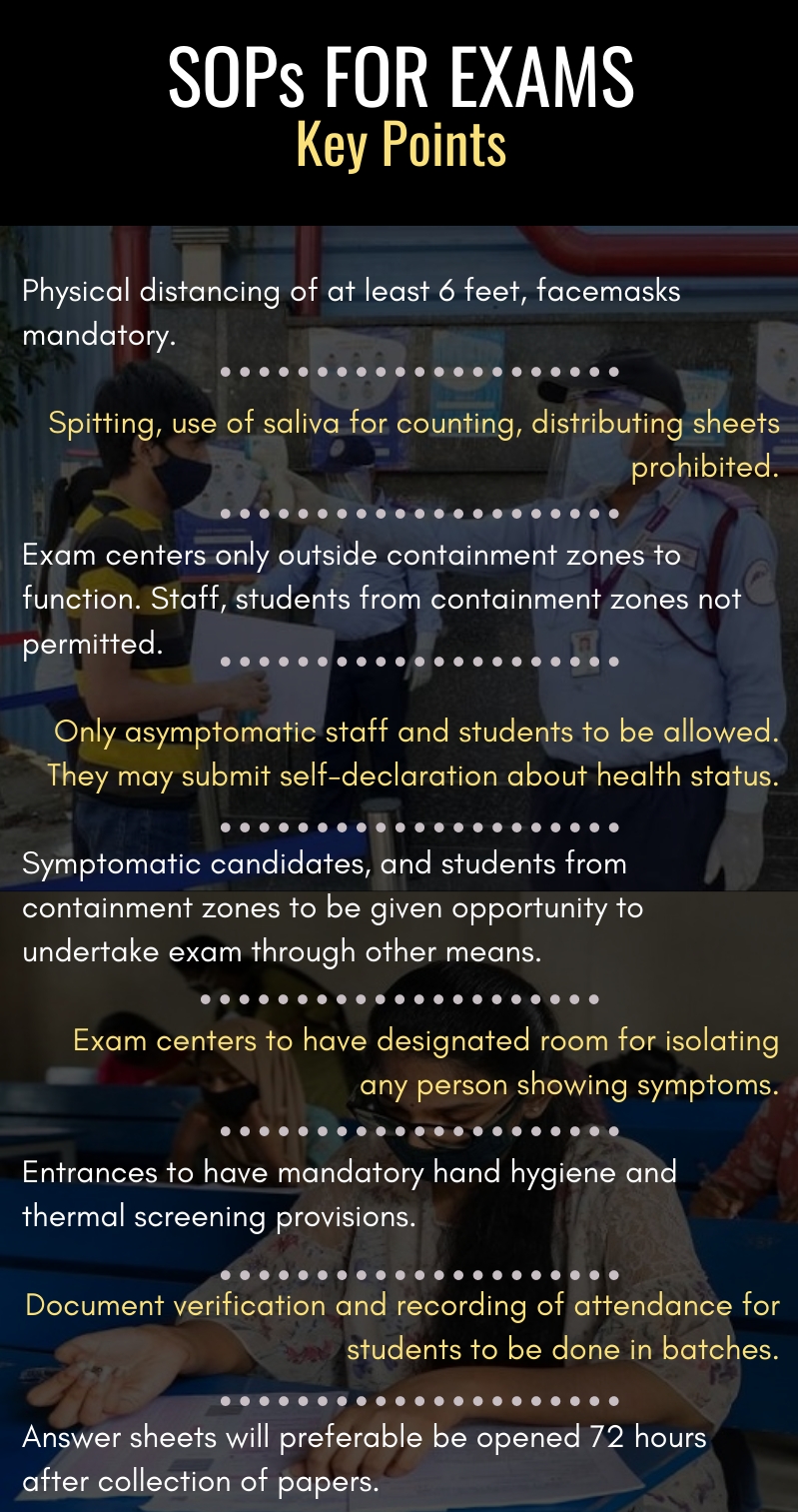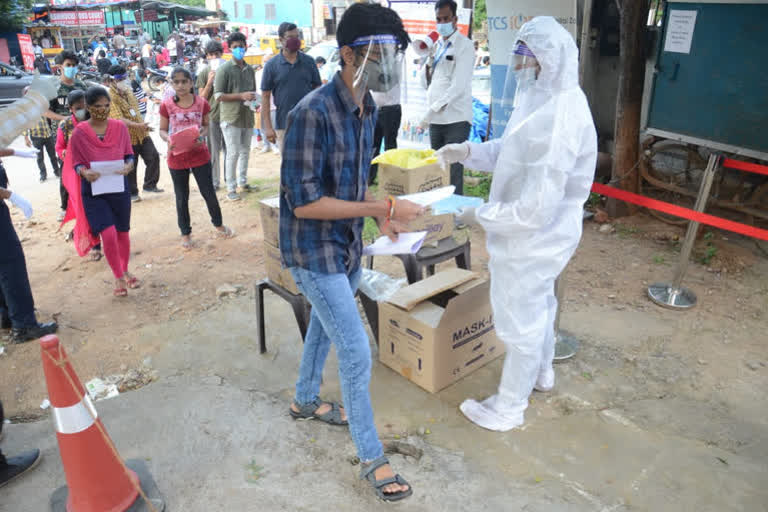New Delhi: The Health Ministry on Thursday issued fresh standard operating procedures to conduct examinations amidst the coronavirus pandemic, which involves following precautionary measures.
"Examination centres are frequented by a large number of students, as well as their parents, and staff till the entire duration of the exam and therefore, it's vital to plan and conduct these examinations, while following specific preventive measures," said the Health Ministry.
The guidelines include ensuring physical distancing, use of face cover, frequent hand washing, use of alcohol-based hand sanitisers and following respiratory etiquette. It also involves the strict practice of covering one's mouth and nose while coughing and sneezing, self-monitoring of health by everybody, not spitting and reporting any illness at the earliest.

Only those examination centres which are outside the containment zone would be allowed to function. Staff and examinees from containment zones will not be permitted.
"Such examinees shall be given an opportunity to undertake the examination through other means or the universities, educational institutions, agency may consider appropriate measures in this regard," the guidelines stated.
Read: PM Modi to address conclave on school education under NEP-2020 tomorrow
Universities, educational institutions and examination conducting authorities may plan out the examination schedule in a staggered manner so as to avoid overcrowding at any examination centre on any day.
"Keeping in view physical distancing norms, institutions should have adequate room capacity to ensure proper seating arrangement for the examination. Appropriate arrangements for personal protection gear like face covers, masks, and other logistic like hand sanitisers, soap, sodium hypochlorite solution etc. shall be made available."
Exam functionaries and examinees may submit a self-declaration about their health status at the time of entrance to the examination centre. Such self-declaration form may be circulated at the time of issue of admit tickets.
Students should also be given prior information on what they should carry, which includes exam related documents, admit card, ID card etc., face mask, water bottle, hand sanitiser etc.
Adequate manpower shall be deployed by the institution for maintaining the discipline to ensure observance to distancing norms and other preventive measures at all times during the conduct of the examination.
Read: CBSE compartment exams: SC to hear matter again on Sept 14
An adequate number of registration rooms and manpower for document verification and recording of attendance shall be planned duly ensuring social distancing norms.
Invigilators and supervisory staff need to be briefed on the code of conduct in the context of Covid-19. The examination centre should have a designated isolation room for isolating any person who is found symptomatic at the time of screening or during examination, till such time medical advice may be sought.
Besides this, entrances will have mandatory hand hygiene and thermal screening provisions. If any examination functionary and examinee fails to meet the self-declaration criteria, they shall not be allowed entry.
Only asymptomatic staff and students shall be allowed inside the examination hall. In regular course, a symptomatic candidate should be referred to the nearest health centre and given an opportunity to undertake the examination through other means or at a later date.
Read: Kerala COVID hospitals introduce robotic trolleys to serve medicines, foods to patients
"However, if a student is found to be symptomatic, the permission or denial thereof, in such cases shall be granted as per the policy already enunciated on the issue by the examination conducting authorities," the Ministry added.
All staff and students to be allowed entry only if using face cover and masks. The face cover and mask has to be worn at all times inside the examination centre by all. Enough entry and exits gates for students and staff shall be ensured to avoid overcrowding.
Maintaining physical distancing of a minimum of 6 feet, when queuing up for entry and inside the centre as far as feasible. Specific markings may be made with sufficient distance to manage the queue and ensure social distancing in the premises.
Proper crowd management in the examination centre as well as outside premises like parking lots, waiting areas... duly following physical distancing norms shall be ensured. Bags, books, mobiles should not be allowed in the examination centre.
Read: COVID-19 underscores that world is a global village: Health Minister
The examinees will be taken to a registration room in batches maintaining adequate physical distancing norms for document verification and recording of attendance. Thereafter they will be escorted in batches to the allotted examination hall.
Frisking of examinees, if needed, shall be undertaken after the thermal screening. Personnel involved in frisking shall wear triple-layer medical mask in addition to gloves.
(With inputs from agencies)



